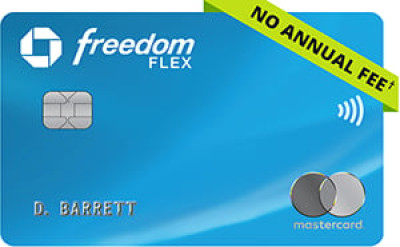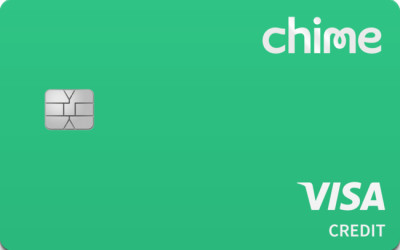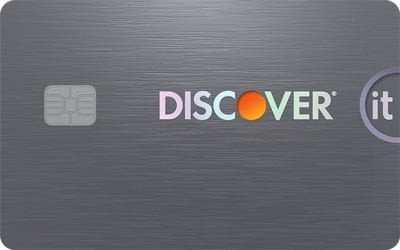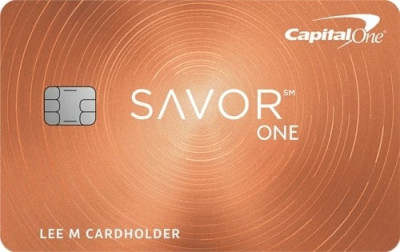No annual fee cards
Best No annual fee cards offers

The Chase Freedom Flex℠, while technically a cash-back card, offers an impressive 5% rewards rate for travel booked through Chase. This feature makes it a versatile and valuable option for travelers.
Pros and cons

The Chime Credit Builder Visa® Credit Card doesn't require a minimum deposit or charge an annual fee, making it an accessible option for building credit. However, it's important to note that you must be a Chime banking customer to apply for this card.
Pros and cons

The Discover it® Secured Credit Card stands out as the top choice among secured credit cards due to its attractive rewards program, absence of an annual fee, and the potential for account upgrades.
Pros and cons

The Capital One SavorOne Student Cash Rewards Credit Card stands out among student cards with its combination of triple rewards in popular categories and a $0 annual fee.
Pros and cons
FAQ
What is a no-fee credit card?
A no-fee credit card, also known as a no-annual-fee credit card, is a type of credit card that does not charge an annual fee for card membership. Annual fees are recurring charges that some credit card issuers impose simply for the privilege of holding and using their credit card.No-fee credit cards are appealing because they allow cardholders to access credit without incurring an additional cost each year. These cards are particularly beneficial for individuals who want to avoid ongoing fees and are looking for a straightforward and cost-effective way to make purchases, build credit, and potentially earn rewards or benefits.
Can I get a credit card with no annual fee if I have bad credit?
Yes, you can potentially get a credit card with no annual fee even if you have bad credit. Some credit card issuers offer no-fee credit cards specifically designed for individuals with less-than-perfect credit. These cards are often referred to as "secured credit cards."Secured credit cards require a security deposit, which typically becomes your credit limit. Because the issuer holds this deposit as collateral, they are more willing to extend credit to individuals with bad credit or no credit history. While secured cards may not offer the same rewards and benefits as unsecured cards, they can be an effective tool for rebuilding your credit and eventually qualifying for a no-fee unsecured credit card. Over time, responsible use of a secured card can help improve your credit score, making you eligible for better credit card offers with no annual fees.
Is a no-annual-fee credit card worth it?
Evaluating whether a credit card is worthwhile involves assessing whether the benefits it offers outweigh the costs associated with it. When a card has no annual fee and provides rewards that surpass its costs, the decision appears straightforward. For instance, if a card with no annual fee yields $100 in rewards for your spending, it seems like a good choice.However, introducing an annual fee adds complexity. A card with a $50 annual fee but generating $200 in rewards may be a better option, leaving you $150 ahead. Evaluating worthiness involves comparing different cards, considering their fees, rewards, and competing alternatives in the market.The prevalence of annual fees varies among credit card types:Cash Back Credit Cards: Most top cash back credit cards don't have an annual fee, except for some with exceptional rewards rates in specific spending categories.Airline Credit Cards: Many airline credit cards charge an annual fee, justified by benefits like free checked bags and priority boarding.Low Interest and Balance Transfer Cards: These cards typically don't have annual fees, aligning with their focus on saving money on interest.Ultimately, the decision to opt for a card with no annual fee or one with a fee involves personal preferences. Some individuals prefer to avoid annual fees altogether, considering them upfront costs with uncertain returns. In such cases, a no-annual-fee card becomes a logical choice.
Should you get a no-annual-fee credit card?
Opting for a credit card with no annual fee may be a sensible choice under various circumstances:Limited Card Usage: If you don't plan to use the card extensively and primarily need it for emergencies or to establish a credit history, a card with no annual fee is a practical option. This is particularly true if you don't spend enough to offset the cost of an annual fee.Preference for Simplicity: For individuals who prefer simplicity and don't want to worry about justifying or recouping the costs associated with a card's annual fee, a no-annual-fee card is a hassle-free choice.Concerns About Upfront Expenses: Annual fees on credit cards can range from $90 to $100, or even higher. If the prospect of a substantial upfront expense without an immediate return is a concern, a no-annual-fee card aligns with a more comfortable financial approach.
Can I get the annual fee waived on a credit card?
It's worth noting that any credit card can effectively become a no-annual-fee card if you successfully negotiate with the issuer to waive the fee. Credit card issuers, especially if you're considered a valuable customer, may be willing to accommodate your request to retain your business.Here are some strategies you can consider:Negotiate a Fee Waiver: Contact your credit card issuer and politely inquire about the possibility of waiving the annual fee. If you are a valued customer and demonstrate regular card usage, they may be willing to accommodate your request.Explore Retention Offers: Instead of a fee waiver, you might be eligible for a retention offer. This could involve earning a bonus that offsets the annual fee. Similar to sign-up bonuses, retention offers typically require a specified amount of spending within a specific timeframe.Consider a Product Change: If you have a credit card with an annual fee that you find challenging to justify, inquire about the option to downgrade to a no-annual-fee card offered by the same issuer. This is known as a product change and can often be arranged by contacting the issuer and exploring available alternatives